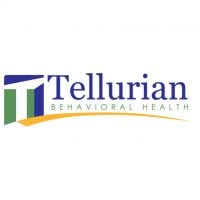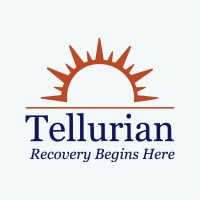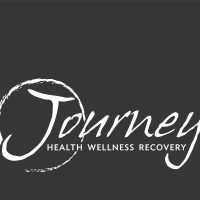
Journey Mental Health Center
Drug Rehab Center in Madison, Wisconsin
- Substance Abuse
- Opioid Addiction
- Mental Health
- Dual Diagnosis
- Drug Addiction
- Alcoholism
Journey Mental Health Center provides individualized treatment plans and evidence-based practices to help individuals suffering from Alcoholism, Opioid Addiction, Substance Abuse, Dual Diagnosis and Drug Addiction achieve sobriety with the highest quality of care.
About This Madison, WI Facility
Journey Mental Health Center is a non-profit rehab located in Madison, WI, dedicated to providing cutting-edge mental health and substance abuse treatment programs. Founded in 1948, the center has grown into a sizable community clinic with over 500 staff members.
The facility is committed to innovation and personalized care, offering a range of services to address mental health disorders and addictions. Their approach emphasizes evidence-based therapies and individualized treatment plans.
Accredited by CARF, State License, and SAMHSA, Journey Mental Health Center provides comprehensive levels of care, including aftercare support, drug rehab, dual diagnosis treatment, intensive outpatient, outpatient, and detox services. Their treatment methods encompass dialectical behavioral therapy (DBT), group and individual therapy, trauma-focused interventions, medication-assisted treatment (MAT), vocational training, and cognitive-behavioral approaches.
- Personalized treatment plans tailored to individual needs
- Multidisciplinary team of experienced professionals
- Continuum of care from detox to aftercare support
Journey Mental Health Center specializes in addressing a wide range of mental health disorders and substance addictions, including alcohol, opioids, and other drugs. Their dual diagnosis program offers integrated treatment for co-occurring mental health and substance use disorders.
For individuals struggling with opioid addiction, Journey Mental Health Center provides a comprehensive treatment approach. This may include medication-assisted treatment (MAT) to manage withdrawal symptoms and cravings, combined with evidence-based therapies like cognitive-behavioral therapy (CBT) and motivational interviewing to address the underlying psychological and behavioral aspects of addiction.
Genders
Ages
Modality
Additional
Accreditations
State License
SAMHSA

CARF
The Commission on Accreditation of Rehabilitation Facilities (CARF) is a non-profit organization that specifically accredits rehab organizations. Founded in 1966, CARF's, mission is to help service providers like rehab facilities maintain high standards of care.
Conditions and Issues Treated
Using both legal medications and illegal substances in order to maintain an addiction is substance abuse. Illegal substances can become addictive after a single use. If you are obtaining legal medications illegally, you may be suffering from substance abuse.
Fortunately facilities like Journey Mental Health Center in Madison, WI are here to help.
Opioid addiction treatment facilities in Wisconsin, like Journey Mental Health Center cover both illegal and prescription opioids abuse. Most plans include detoxification and subsequent medications to ease the process. Behavioral therapies and counseling are also necessary to resolve the root cause of addiction.
A dual diagnosis is when someone deals with both alcohol and mental or emotional disorder. Emotional trauma, bipolar disorder, schizophrenia, depression can be part of dual diagnosis therapy. It must happen simultaneously to get care for these conditions to handle any of them effectively.
Levels of Care Offered
This center offers a variety of custom treatment tailored to individual recovery. Currently available are Aftercare Support, Detox, Drug Rehab, Dual-Diagnosis, Intensive Outpatient, Outpatient, with additional therapies available as listed below.
Detox is a drug rehab process that is designed to remove the drug addict from the drug safely. The problem with solely using detox as a sobriety tool is that it alone provides no therapy or counseling. If a person goes through detox and returns to their everyday life, they may begin using again once the detox has worn off.
Detox does not help with cravings, so for some addicts, this can be extremely difficult and should be both done and supervised by medical professionals. Aftercare is crucial, so selecting a facility that offers additional services is important.
An outpatient treatment program is set up to help with alcohol or drug addiction, or a co-occurring disorder. The patient must attend the Wisconsin facility for their therapy and other programs but are able to return home each night. The frequency of mandatory attendance decreases after much of Journey Mental Health Center‘s program is complete.
Treatment is just the first step to maintaining sobriety. After treatment, aftercare support at Journey Mental Health Center helps the individual adjust to a life without substances. This support may involve a sober living home in or near Madison, WI, career counseling, or educational assistance. This is when a relapse prevention plan begins to take shape.
Journey Mental Health Center‘s Therapies & Programs
Treatment programs include individual therapy for the greatest chances of success. Customized individual therapy is counseling involving you and your Journey Mental Health Center counselor. Individual therapy leads to greater peace and understanding about your triggers for addiction.
Spousal relationships bear the brunt of alcohol and drug dependence. It becomes critical to submit the relationship to couples therapy to prevent straining it further. Some facilities like Journey Mental Health Center in Madison, WI offer couples therapy options to manage intimate partnerships amid the recovery process. Other couples-focused treatment plans can provide the patient and their partner tools to get things back to normal.
When family members are more proactive and involved in the treatment procedure, it encourages the patient to advance his or her progress. Moreover, it shouldn’t be ignored that genetics play a role when it comes to addiction, so it’s better to approach the problem as a unit. Also, with proper education, family members can help an individual avoid addiction triggers and guide him or her in making lifestyle changes necessary for his or her sobriety.
It has been said that unhealed trauma is the root of most addictions. Trauma therapy is a way of addressing trauma while in a safe situation in order to heal. Healing past traumas and introducing coping strategies are strong foundations for sustained recovery from addiction. This may involve individual or group counseling or both, in a Madison, WI facility. Other forms of therapy have been proven to assist in healing past traumas.
Dialectical Behavior Therapy (DBT) helps those who attend Journey Mental Health Center understand how their feelings, beliefs, and thoughts affect their behaviors. DBT is particularly useful for people with self-harming behaviors, as well as those with substance abuse disorders. DBT teaches people how to tolerate distress, regulate their emotions, and how to become mindful.
Cognitive Behavioral Therapy (CBT) is a type of psychotherapy that focuses on the underlying thoughts and behaviors that caused the problem of addiction in the first place and may cause a relapse. Negative feelings are common in substance abuse disorders, and if not recognized, they can cause co-occurring disorders.
CBT involves strategies that help to change the thinking and behavioral pattern by cognitive restructuring. In simple terms, it helps to remove negative thoughts and provides long-term benefits. Also, CBT promotes self-awareness, self-control, and healthy ways to respond to negative thoughts. It can be administered as a mono-therapy as well as a part of combination therapy.
Payment Options Accepted
For specific insurance or payment methods please contact us.
Is your insurance accepted?
Ask an expert, call (888) 674-0062
Additional Details
Specifics, location, and helpful extra information.
Madison, Wisconsin 53711 Phone Number(608) 280-2720 Meta DetailsUpdated April 15, 2024
Staff Verified
Patient Reviews
There are no reviews yet. Be the first one to write one.
Madison, Wisconsin Addiction Information
Wisconsin has some of the highest rates in the United States for both adolescent and adult substance abuse. Since 2009, the state has been experiencing the same escalating rates of drug abuse and addiction as the rest of the country. The major concerns are the misuse of prescription painkillers and the escalating number of deaths due to alcohol-related liver disease.
Madison, Wisconsin is struggling with an opioid crisis. In 2017, there were 234 drug overdoses in Madison. 1 in 5 residents knows someone who has died from a drug overdose. 8.3% of Madison residents report heavy drinking. This area ranks 4th among Wisconsin cities for drug use disorders. The centers in Madison offer a variety of services, including individual and group counseling, medication-assisted treatment, and detoxification.
Treatment in Nearby Cities
- Stoughton, WI (16.0 mi.)
- Jefferson, WI (34.1 mi.)
- Neillsville, WI (118.5 mi.)
- Menomonee Falls, WI (69.4 mi.)
- Chippewa Falls, WI (161.7 mi.)
Centers near Journey Mental Health Center
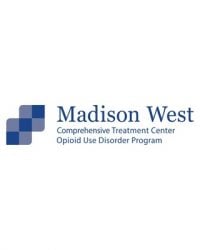
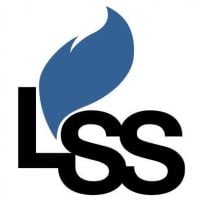

The facility name, logo and brand are the property and registered trademarks of Journey Mental Health Center, and are being used for identification and informational purposes only. Use of these names, logos and brands shall not imply endorsement. RehabNow.org is not affiliated with or sponsored by Journey Mental Health Center.




